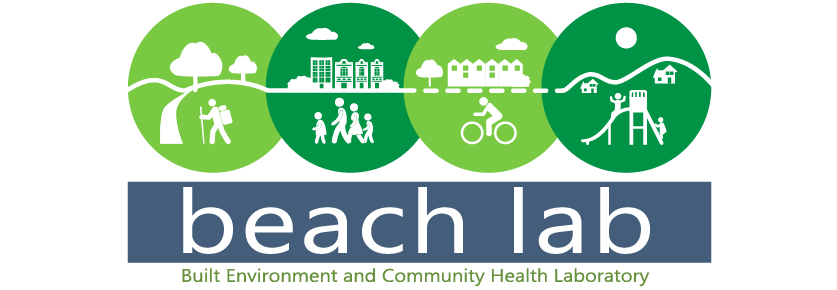
From February 17th to 20th, the BEACH Lab attended the 2019 Active Living Conference (ALC) hosted at the Francis Marion Hotel in Charleston, SC. ALC brings together national and international researchers, practitioners, and policy-makers focused on designing and improving active living communities to encourage physical activity and overall health. This year’s conference was centered on the theme of “Intended and Unintended Outcomes of Building Active and Healthy Communities.”

Dr. Andy Kaczynski was honored to serve as one of the conference co-chairs. In this role, he worked with diverse organizations across SC to fundraise sponsorships to support the event and to oversee development of the scientific program. This year’s conference underwent a purposeful name change from Active Living Research (ALR) to simply Active Living Conference (ALC) to reflect the inclusive nature of emphasizing research, practice, and policy related to building active and healthy communities. To emphasize this and to highlight the conference theme, the program featured two excellent panels discussing topics such as equity and gentrification and included esteemed speakers such as Columbia Mayor Steve Benjamin and Whitney Kimball Coe, Director of the Center for Rural Strategies. Conference attendees were challenged to adopt the new ALC moniker and those failing to do so had to pay a high price (as reflected in the adjacent photo featuring Dr. Kaczynski doing pushups on stage!). The conference also featured a wealth of new networking opportunities, including an interactive plenary designed to translate research into practice (complete with a twitter competition), various physical activity breaks, and topic-based social events where attendees took over various bars and restaurants across downtown Charleston.
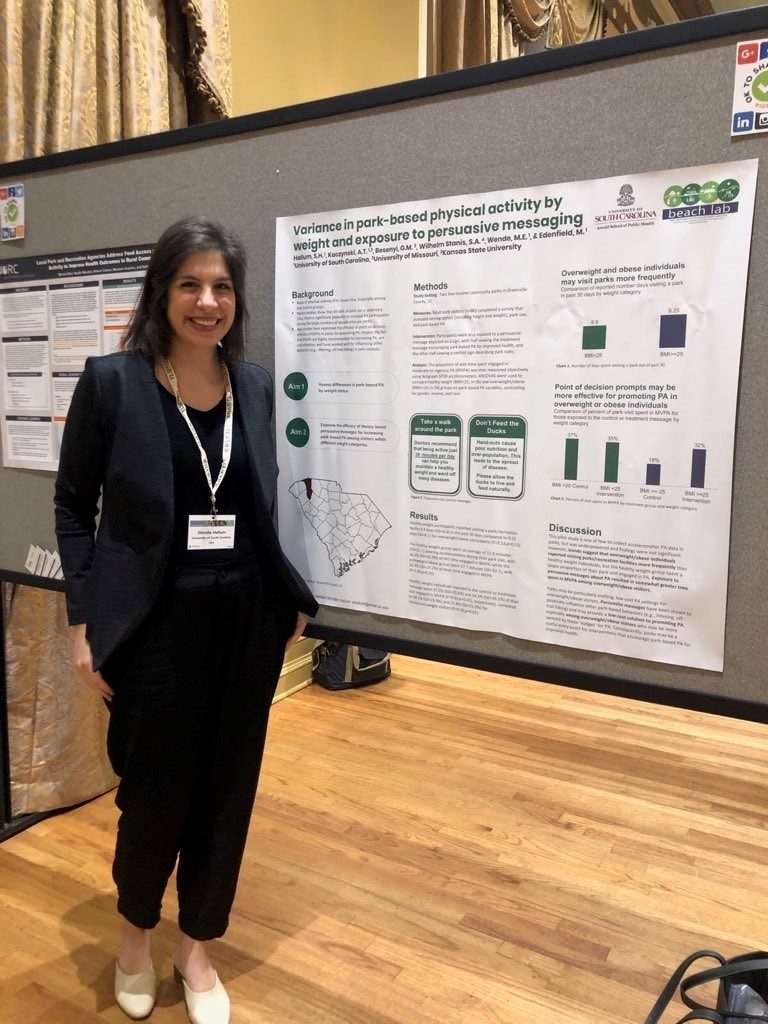
It wasn’t all fun and games though as there was much excellent research to be shared. The first evening, a poster session was held for conference attendees where two BEACH Lab members presented their research. First-year
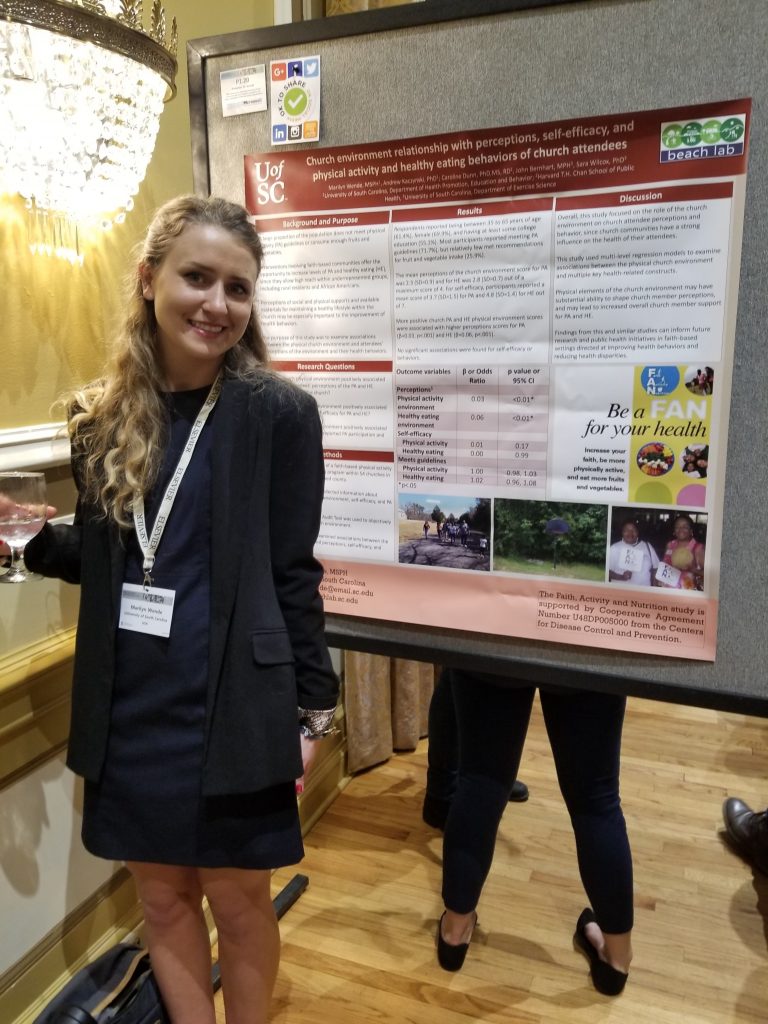
Marilyn Wende, a second-year
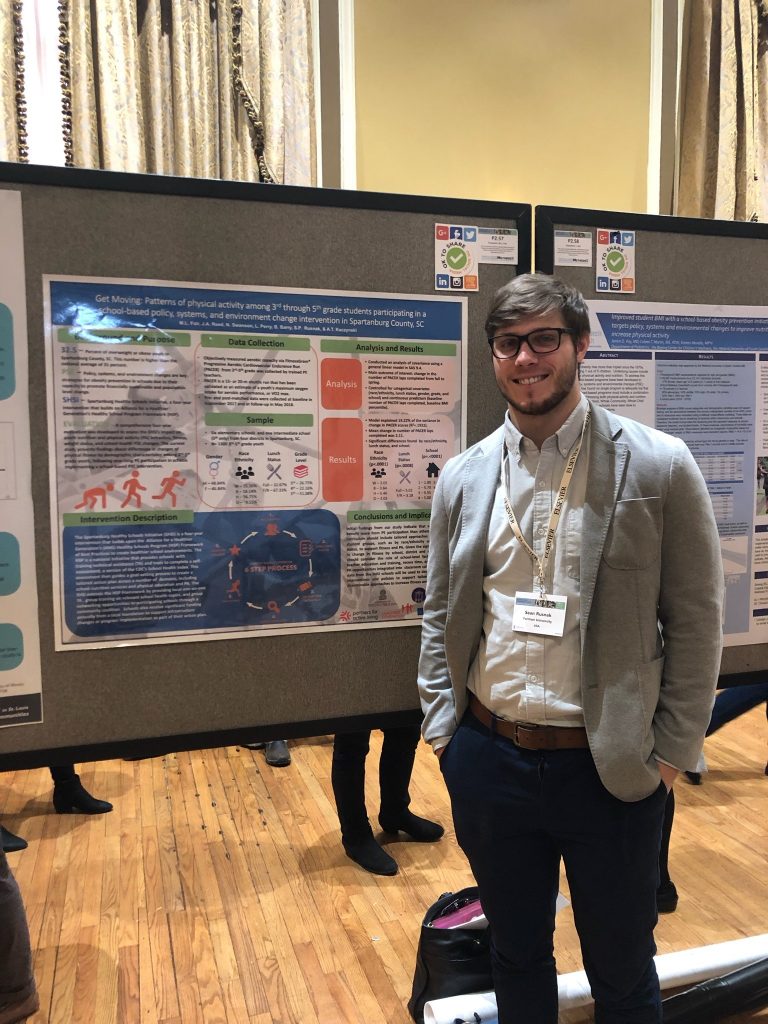
On Monday afternoon, fourth-year
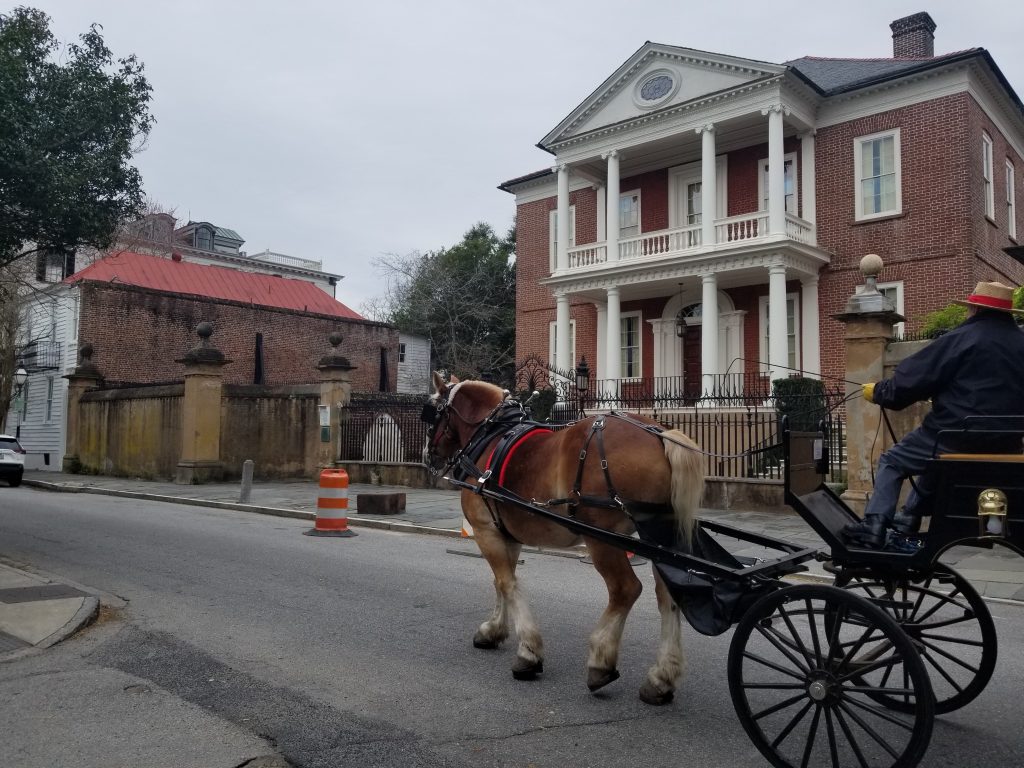
Following the conference on Monday night, current and former BEACH Lab members, Andy, Ellen, Marilyn, Shirelle, and Morgan Hughey, were able to join the rest of the ParkIndex team for some great seafood at a local restaurant. During this dinner and at a following impromptu networking event, the BEACH Lab team was able to mingle with former research partners and meet others within the field that studied the impact of the built environment on active living.
On Tuesday, BEACH Lab collaborator Dr. Jasper Schipperijn from the University of Southern Denmark presented on our ParkIndex project. He shared initial findings related to park features and park use, and also discussed Geographic Information Systems methodology used in the project.
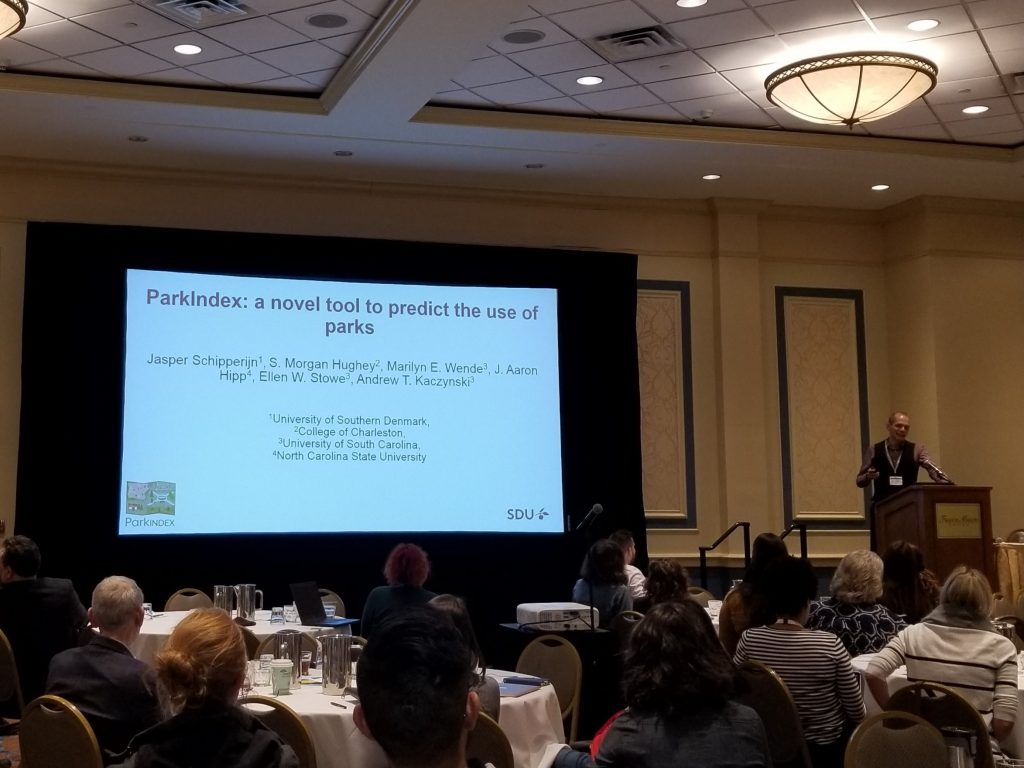
After the Tuesday afternoon sessions, Ellen, Marilyn, and Shirelle led a walking tour of downtown Charleston for conference attendees. Walkers braved the rain and completed a three-mile walk highlighting 25 historic locations in Charleston. Andy and former BEACH Lab member, Gina Besenyi, tried pickleball (mini-tennis) in the College of Charleston gym. These physical activity breaks at the end of Tuesday’s program are always an active highlight of the ALC program! On Tuesday, BEACH Lab collaborator Dr. Jasper Schipperijn from the University of Southern Denmark presented on our ParkIndex project. He shared initial findings related to park features and park use, and also discussed Geographic Information Systems methodology used in the project.
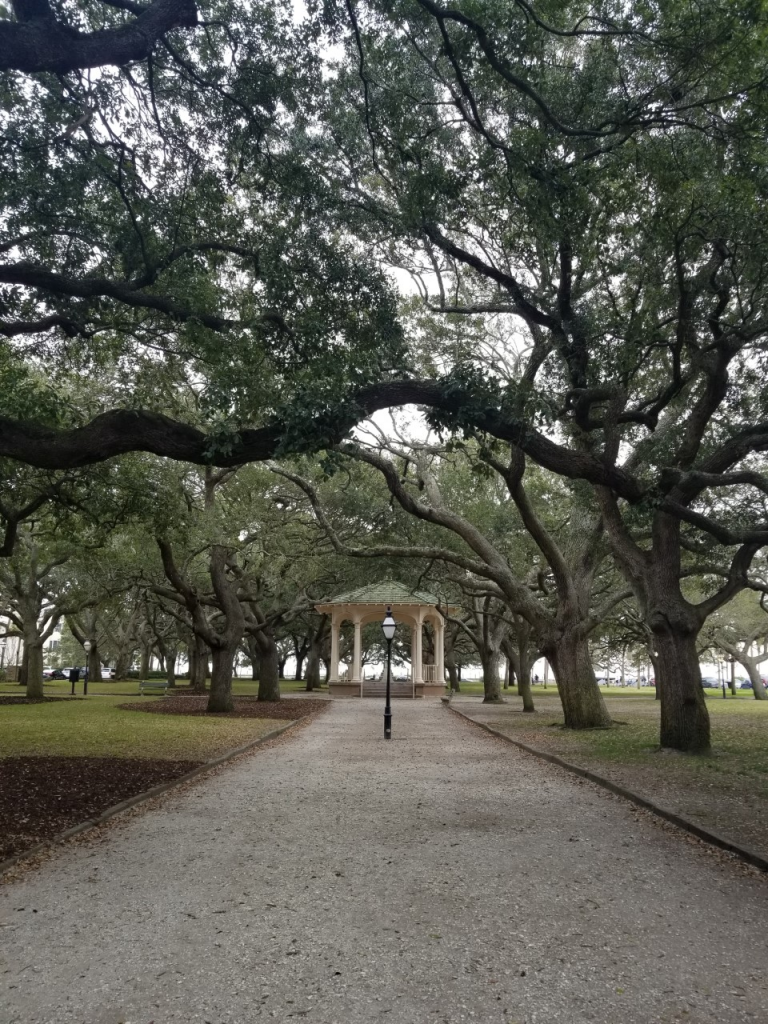
On Wednesday morning, Ellen Stowe, a third-year PhD student and BEACH Lab member, gave an oral presentation titled “Associations between walkability and youth weight status: Observed differences by urbanicity.” This speed talk summarized findings from a study on the relationship between neighborhood Walk Score and obesity in nearly 13,500 youth. She discussed the importance of considering geographic location when aiming to improve features of the built environment like walkability. This was Ellen’s third time presenting at ALC, and she very much looks forward to attending ALC in the future.
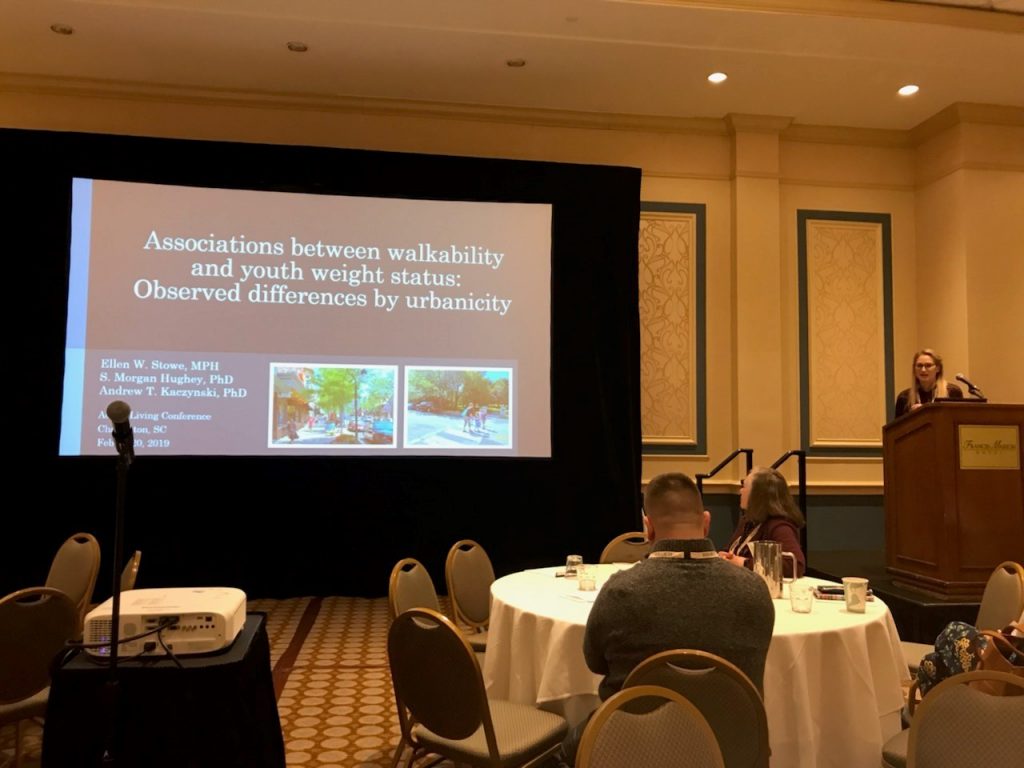
The conference concluded on Wednesday with a town hall discussion about lessons learned and ways to keep pushing forward with integrating research, practice, and policy to build active and healthy communities. Many thanks to partners across South Carolina for their fiscal and moral support in hosting an amazing event right here in SC. And congratulations to both Ellen and Shirelle; to attend the conference, Ellen received the University of South Carolina Graduate School Travel Award and Shirelle received the Arnold School of Public Health Travel Award.
